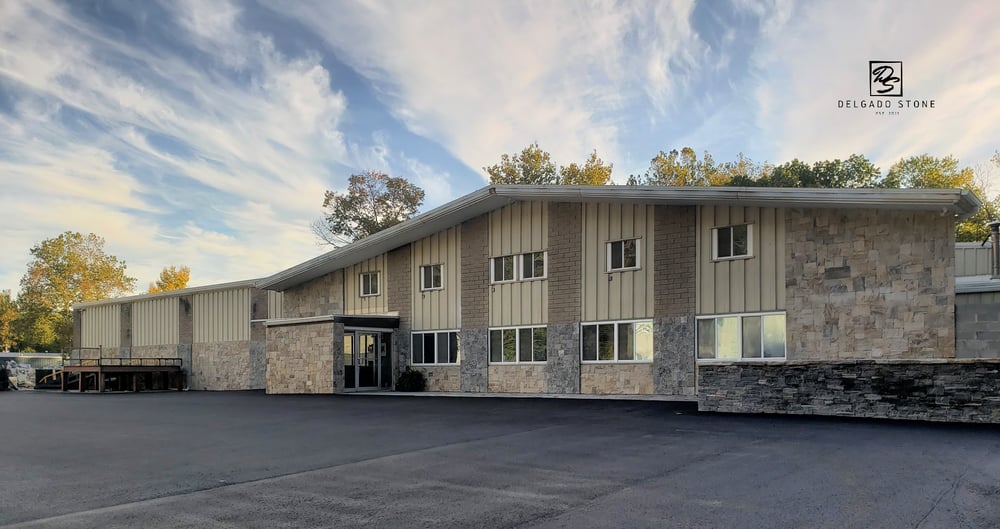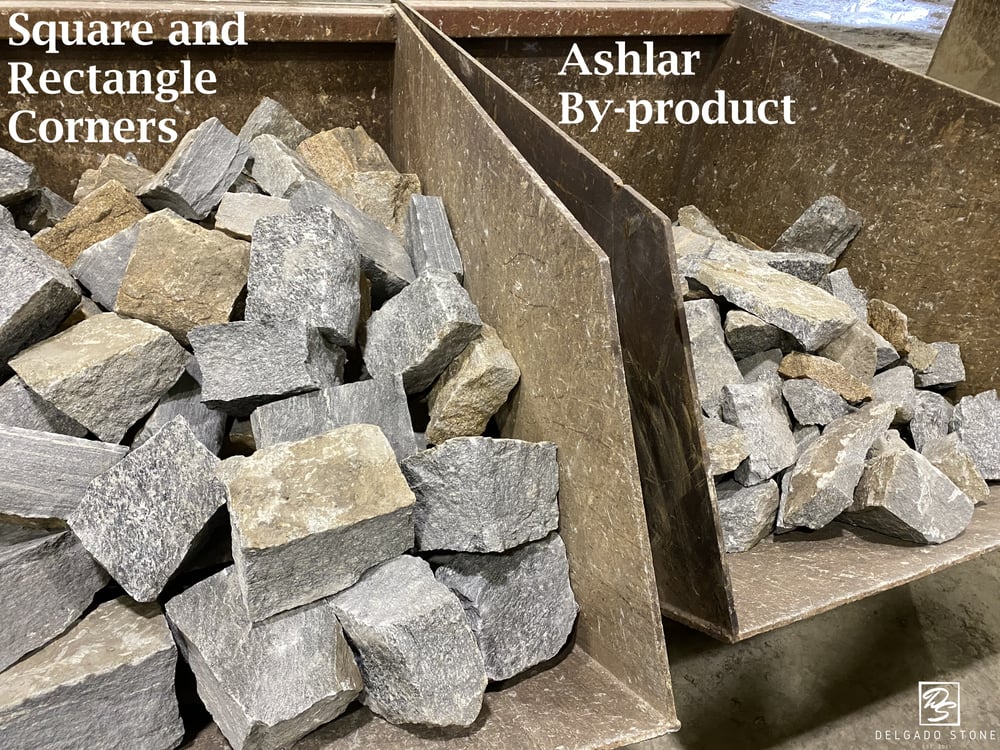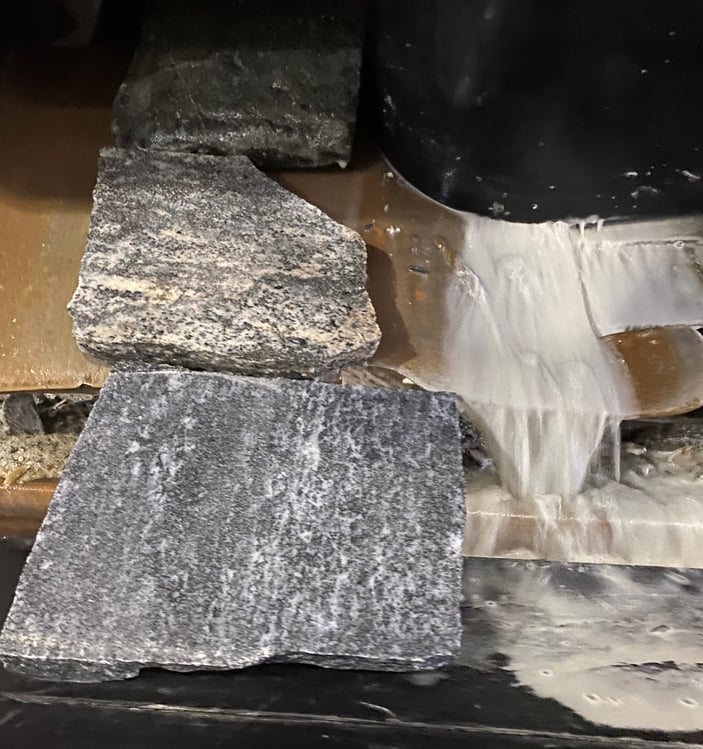Most of the products we use throughout our daily lives at one point started in the hands of a manufacturer. The demand, difficulty and automation of what is being manufactured dictates things like the size of the facility, and the number of employees. Throughout different industries and under varying regulations the focus on being environmentally friendly through sustainable practices is less than consistent. While some industries create their product from scratch with chemicals, in the natural stone industry the finished product and original material are broken down to only change the size and shape. To create the natural stone products we receive material from various sources (75% of our stone comes from within 100 miles of the facility) and transform it by breaking it down into the finished products that eventually leave our facility. Throughout the process, we implement sustainable practices without sacrificing efficiency.

Delgado Stone Manufacturing Facility
Waste is one of our main concerns. When dealing with material that is broken down in size and shape, at each point in the process it is important to get as much yield from the material as possible. Of course, this is true because the more waste we produce the less finished product we're creating, but also wasting material is not a sustainable practice. We counteract "waste" two ways; the first is pictured below and it is referred to as a by-product. While shaping the individual pieces into one of our larger patterns like the Square and Rectangles or Mosaic the smaller pieces that break off in the process are saved, to be used for our patterns with smaller specifications like Ledge or Ashlar. This helps us get the maximum yield from each piece. Even with this in place, there is inevitably waste. That is where the saying "one man's trash is another man's treasure" comes into place, in this case, the unusable stone material is given away and broken down for fill. This fill material is needed on job sites and repurposing "waste" is another way we can continue to be sustainable.

Prepping Corners For The Corner Saw While Saving Ashlar By-Product
There are three crucial parts to creating natural stone products at our facility in Brookfield, CT. They are our people, the natural stone material, and water. Water is a crucial component in creating our thinstone veneer and corners. Thousands of gallons of water are used to cool the blades on our thinstone saws, which helps us avoid breakage and waste. Another way we can be sustainable is by recycling water, the water we use is stored and recycled using a tank on site. Below is a picture of the newly sawn thinstone pieces coming off the saw conveyor alongside the consistent flow of water. By recycling our water on site we are able to control our water supply while also saving on costs.

Thinstone Saw Conveyor
Ultimately the goal is that each piece of natural stone that goes through our production process yielded as much usable material as possible. Along with this, the finished material that leaves the facility will end up on a new or existing structure that is being built to last. The natural stone pieces will last as long as the structure it accompanies. This durability makes it a premier building material for a project with a focus on sustainability.




-2.png?width=150&height=150&name=Untitled%20design%20(2)-2.png)
COMMENTS